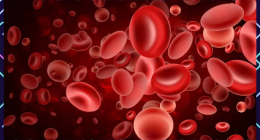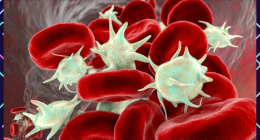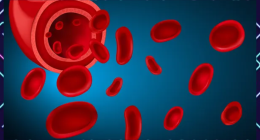Older Patients with Mantle Cell Lymphoma: Phase 2 Trial Shows High Response Rates with BR-VEN Regimen
Mantle cell lymphoma (MCL) is a rare and aggressive form of non-Hodgkin lymphoma, particularly affecting older patients over 60. While initial treatment can achieve remission, relapse rates remain high, and current options often prove too intense for older individuals. This highlights the urgent need for well-tolerated yet effective treatment strategies.
Fortunately, recent research offers a glimmer of hope. The phase 2 trial PrE0405 evaluated the effectiveness of a novel combination therapy – bendamustine, rituximab, and venetoclax (BR-VEN) – in older patients with MCL.
Promising Results:
The trial enrolled 33 patients with MCL over 60 years old. The combination regimen demonstrated remarkable efficacy, achieving:
- An impressive 85% complete response rate, meaning PET scans showed no evidence of disease after treatment.
- An overall response rate of 97%, encompassing complete and partial responses.
- Confirmation of complete response in 85% of patients through PET-negative bone marrow biopsies.

Favorable Tolerability Profile
While efficacy is paramount, tolerability is equally crucial for older patients. The study found BR-VEN to be generally well-tolerated, with the majority of side effects manageable and no cases of clinical tumor lysis syndrome. Most common side effects included:
- Gastrointestinal issues (nausea/vomiting, diarrhea)
- Fatigue
- Lymphopenia, neutropenia, and thrombocytopenia (low blood cell counts)
Although 58% of patients experienced Grade ≥3 toxicities, these were primarily hematologic and manageable through supportive care.
Potential Paradigm Shift
The impressive efficacy and favorable tolerability of BR-VEN suggest a potential paradigm shift in MCL treatment for older patients. This combination offers a promising alternative to more aggressive and potentially debilitating therapies, providing hope for improved outcomes with better quality of life for this vulnerable population.
Further Research Needed
While the results of PrE0405 are encouraging, further research is required to confirm these findings in larger and more diverse patient populations. Additionally, long-term follow-up data is needed to assess the duration of response and overall survival.
Looking Forward
This promising research on BR-VEN marks a significant step forward in the fight against MCL for older adults. With continued research and development, this combination therapy holds immense potential to improve the lives of countless patients facing this challenging disease.
Deeper Dive into PrE0405 and the Future of MCL Treatment
The PrE0405 trial has ignited excitement among researchers and hope among patients with MCL. Let’s delve deeper into the implications of this study and explore future avenues for research and treatment.
Unpacking the Data:
The high response rates observed in PrE0405 are remarkable. Compared to historical data for standard bendamustine and rituximab (BR) therapy, which typically achieves CR rates of 50-60% in older MCL patients, the addition of venetoclax appears to significantly boost efficacy. This suggests that venetoclax may be a game-changer for MCL treatment, particularly for older individuals who often struggle with tolerating more aggressive regimens.
Potential Benefits for Patients:
The promising results of PrE0405 translate to potential benefits for patients on multiple fronts:
- Improved response rates: Higher CR rates translate to better disease control and potentially longer remission periods.
- Reduced treatment intensity: BR-VEN offers a less toxic alternative to conventional therapies, potentially improving quality of life and reducing treatment burden for older patients.
- Potential for personalized treatment: The findings suggest that venetoclax may be particularly effective in patients with high-risk features like blastoid histology and high MIPI scores. This paves the way for personalized treatment approaches tailored to individual patient characteristics.
Future Directions:
While PrE0405 provides invaluable insights, several questions remain unanswered, necessitating further research:
- Confirmation in larger studies: The small sample size of PrE0405 requires validation in larger Phase 3 trials with longer follow-up periods to confirm the long-term efficacy and safety of BR-VEN.
- Mechanism of action investigations: Understanding the precise mechanisms through which venetoclax works in MCL will help guide further research and development of novel treatment strategies.
- Combination therapy exploration: Investigating BR-VEN in combination with other promising agents, such as targeted therapies or immunotherapies, holds potential to further improve outcomes for MCL patients.
- Exploring minimal residual disease (MRD): Measuring MRD levels after treatment can provide valuable information about the risk of relapse and guide treatment decisions. Further research is needed to establish the role of MRD monitoring in MCL management.
A New Era for MCL Treatment:
The PrE0405 trial has marked a significant turning point in the landscape of MCL treatment. The promising results offer hope for improved outcomes and a better quality of life for patients, particularly older individuals. As research progresses and larger studies confirm these findings, we can anticipate the integration of BR-VEN into the standard of care for MCL, ushering in a new era of personalized and effective treatment for this challenging disease.
Continue to check our website soundhealthandlastingwealth.com for more articles of this kind. And, please use our comment section as well, we would love to hear from you. Read more health topics on Healthproductsblog







